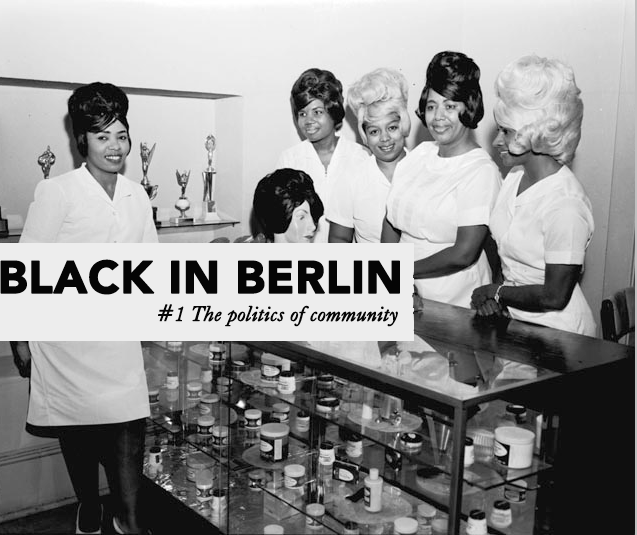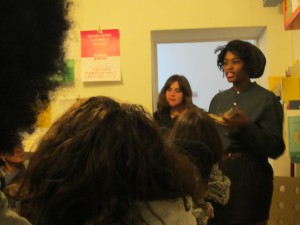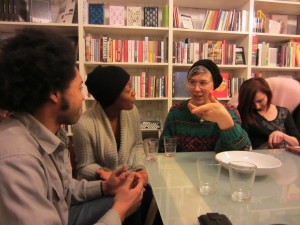The first time I met performance artist Jessica Lauren Elizabeth Taylor was half a year ago at “Africa in Berlin” event that went horribly, horribly wrong. So I was pleased to find out that this experience was the impetus for her to create the Black in Berlin Salon, a monthly round-table discussion where people of all backgrounds are encouraged to share, question and discuss thematic issues of importance to the multicultural diaspora here in Berlin.
The aforementioned, haphazard “Africa” event consisted of a one-hour panel discussion, where, after laborious introductions, disparate experts were left with about 20 minutes to discuss everything from racism and immigration to Germany’s colonial past. Audience members with privilege took up most of the little time we had to contribute by waxing poetic about their dissertations and travels to Africa, or asking the double-edged sword, “What does it feel like to be discriminated against?”, forcing the Blacks on stage to relive these injury for the benefit of the insensitive bearer of the question, who assumes they can never relate. To add insult to injury, the Q&A was cut short so that an african band could start playing. Although the organizers had the best of intentions, this was the perfect end to a superficial treatment of a topic that already gets so little attention.

As the staff collapsed the benches to make room for the dance floor, most of the Black Berliners in the audience huddled together afterwards to continue the discussion. For me, this was the best part of the whole night. Email addresses were exchanged, connections were made, and for most, the evening was salvaged. Little did we know that the best was yet to come.
Thankfully, Taylor was still not satisfied. When Dialogue Books, the Neukölln bookstore that is becoming the hub of intellectual thought in Berlin, proposed that she moderate a monthly series of salons to fill the gap in discourse about multiculturalism in the city, she jumped at the chance.
Last week’s premiere event was a great inauguration. “The Politics of Community” was the overarching theme, but after a wonderful introduction to give some academic context, Taylor expertly guided our discussion forth and back to other areas of concern. Topics ranged from politically correct vocabulary (one beautiful Black women rejects both terms “race” and “mixed” to describe herself), to how German administrative forms fail to reflect the diverse background of some Berliners (how can you communicate that your place of birth, ethnicity and place of residence are are varied when there is only one box to check?) to how the emphasis on Germany’s Nazi past leaves little room to address the atrocities of colonialism that foreshadowed it.
The consensus? That there is no consensus. Blacks and other minorities in Berlin are all individuals, and we’d rather tell the stories of our divergent heritage than check a box. Just maybe not in line at the Spätkauf. These are intimate questions, and one’s curiosity is not reason enough to invade our privacy, especially if you haven’t bothered to first ask our first and last names. A better bet would be to come to the next Black in Berlin Salon, where respect, exchange and learning are the main attraction.


Keep an eye on Dialogue Books’ Events page for the next Black in Berlin Salon: http://www.dialoguebooks.org/events/
More on Jessica Lauren Elizabeth Taylor’s artworks and happenings here : http://thejessicastudy.com/

